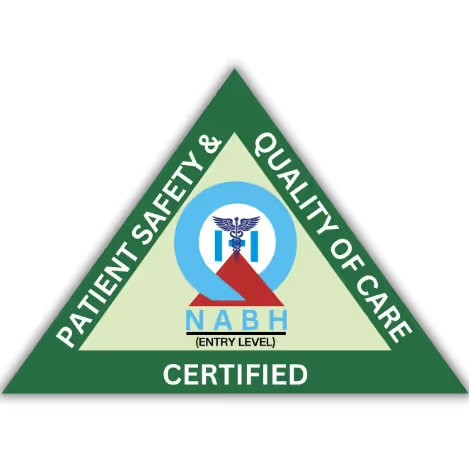By Chirag Global Hospitals

Anal fistulas are painful, abnormal tunnels formed between the anal canal and the skin near the anus, often resulting from infections or abscesses. While many factors contribute to their development, a sedentary lifestyle especially prolonged sitting, increases the risk significantly due to increased pressure and reduced blood flow in the anal area. This article not only highlights reasons to avoid sedentary habits but also provides a comprehensive guide on additional preventative measures to protect your anal health.
Why Avoid a Sedentary Lifestyle for Anal Fistula Prevention
1. Increased Pressure on the Anal Region
When we sit for extended periods, especially on hard surfaces, it exerts pressure on the anal region. This pressure can lead to the development or worsening of anal fistula. The continuous pressure restricts blood flow to the area, hampers healing, and increases the risk of infection.
By reducing the time spent sitting, you can alleviate the pressure on the anal region, allowing for better healing and minimising the risk of anal fistulas.
2. Impaired Blood Circulation
Sedentary behaviour and prolonged sitting have a detrimental effect on blood circulation. When we sit for long periods, blood flow slows down, especially in the lower extremities. This reduced circulation can compromise the healing process and weaken the immune system’s ability to fight off infections.
By incorporating regular physical activity and avoiding prolonged sitting, you can enhance blood circulation, supporting the healing of anal fistulas and reducing the likelihood of their occurrence.
3. Increased Risk of Obesity and Inflammation
Sedentary lifestyles are closely associated with weight gain and obesity. Excess weight places additional pressure on the anal region, increasing the risk of developing anal fistulas. Obesity also contributes to chronic inflammation in the body, which impairs the healing process and weakens the immune system.
By adopting an active lifestyle that includes regular exercise, you can maintain a healthy weight and reduce inflammation, thereby reducing the risk of anal fistulas.
4. Poor Bowel Function
Sitting for prolonged periods can disrupt healthy bowel movements, leading to constipation or diarrhoea. These conditions put a strain on the anal region, potentially causing anal fissures or exacerbating existing fistulas. Regular physical activity helps regulate bowel movements and promotes healthy digestion.
By avoiding prolonged sitting and incorporating movement throughout the day, you can reduce the likelihood of experiencing bowel issues and prevent the development of anal fistulas.
5. Weakened Pelvic Floor Muscles
Sedentary behaviour contributes to weakened pelvic floor muscles. These muscles play a crucial role in supporting the rectum and anal canal. When they become weak, it increases the likelihood of anal fistulas and other pelvic floor disorders.
Regular exercise, including pelvic floor exercises, can strengthen these muscles, providing better support to the anal region and reducing the risk of anal fistulas.
6. Increased Risk of Infections
Prolonged sitting can create a warm and moist environment around the anal region, making it an ideal breeding ground for bacteria and fungi. This increases the risk of infections, including abscesses, which can lead to the formation of anal fistulas.
Regular movement and avoiding prolonged sitting can help maintain proper hygiene and ventilation in the area, reducing the risk of infections and subsequent fistula formation.
7. Overall Health Benefits
Lastly, adopting an active lifestyle has numerous benefits beyond anal fistula prevention. Regular physical activity improves cardiovascular health, boosts the immune system, enhances mental well-being, and reduces the risk of various diseases.
By incorporating movement into your daily routine, you not only decrease the likelihood of anal fistulas but also improve your overall health and well-being.
It is evident that avoiding prolonged sitting and adopting an active lifestyle is crucial for preventing anal fistulas. However, if the symptoms of anal fistula persist, you should consider medical attention immediately.
FAQ:
Can sitting too much cause a fistula?
Prolonged sitting alone will not directly cause fistulas, it worsens the underlying conditions such as haemorrhoids or abscesses, increasing the risk of developing fistula.
Can constipation cause a fistula?
How to avoid a fistula again?
Conclusion
While the original focus on sedentary lifestyles is crucial in understanding one major risk factor for anal fistula development, addressing a wider range of preventive measures leads to better health outcomes. By combining improved diet, hygiene, physical activity, medical care, and lifestyle changes, you can significantly lower your chances of developing anal fistulas. Taking control of your lifestyle is the most effective way to protect your anal health. Then start with small changes today to avoid painful complications tomorrow.
If you are wondering about the best anal fistula treatment hospital in Bangalore, look no further than Chirag Global Hospitals. With a team of highly skilled surgeons and specialists, we offer cutting-edge treatments and advanced surgical techniques for anal fistula management. We also prioritise patient comfort and provide compassionate care throughout the treatment journey.







